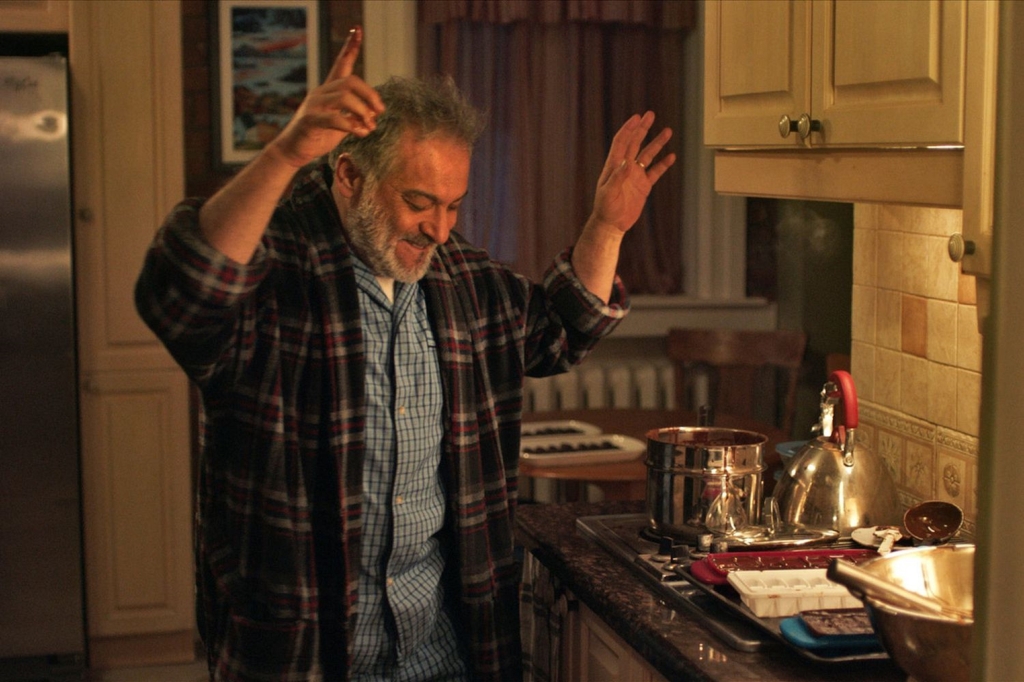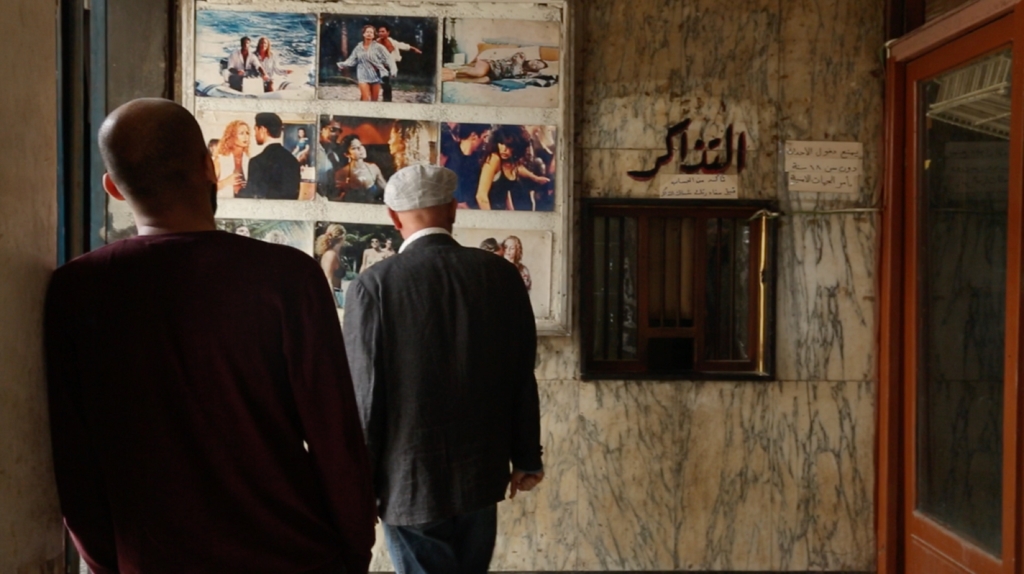As the second day began, the first film directorials poured in from all directions. Different shows in different locations make you wonder how to combine watching all these movies. We watched Take Me to the Movies, for example, in which the young Iraqi director Al-Baqir Jaafar travels with the writer and ex-soldier Nassif Falak. The story of the novelist Falak almost repeats itself to match the story of the director himself: he met Jafar Falak, whose cinema he hid in during the 1980 Iran-Iraq war. Babylon / 1973) and dreams of becoming an actor like Steve McQueen.
Jaafar and Falak search for a film that shows Falak’s dream of war-torn Iraq. The journey leaves Jafar in limbo: does he decide to stay in Baghdad or will he leave to pursue his dream? “Take Me to the Movies” is intimate enough to cover the entirety of Iraq. We are not talking about a superficial closeness here, but rather something that involves many questions: what happened to the dreams of previous generations in Iraq? What happened to his comfort? The end of it? Or will he still be able to achieve his goals? The film also makes you think about the future of the Iraqi film industry, especially the generation of the nineties, and how the cycle of life repeats itself with the same problems faced by different generations. In a mixture of drama, fantasy and documentary reality, Al-Baker takes us into an Iraq we don’t know, an Iraq that old and new generations long for and at the same time they try to escape. There’s no room for lies at Take Me to the Movies. A film where the sincerity in the eyes of its characters comes to the point of pain. This is the very truth that we smell in the film “Sol” by Algerian Salah Essaad.

The film tells the story of Sola (Sol Bahri), a young single mother who is kicked out of her family home in the name of “honour”. Sola had nowhere to go when her father threw her out of the house and she asked some friends and relatives for help. Embarking on a whirlwind 14-hour journey, Sola’s only goal is to save her daughter from pain and suffering. But everything and everyone around him is a potential threat, and the line is often blurred for both those who want to help him and those who drag him into a spiral of violence. A young woman drives from the city of Batna to Annaba and jumps from one car to another, alternating between moments of peace and joy with friends and moments of great anxiety and sadness. Behind a serene landscape, Sula heads towards her inevitable fate on a tragic and exciting journey. From the very beginning, the director’s choice stands out in the way his work is presented. The film on the road is shot entirely in the car, which means that no matter what happens, the camera (almost) never leaves the car and moves with the Solar all the time. A good choice allowed us not to separate ourselves from the characters who follow each other, sometimes almost to the point of nausea, and further hardened some moments by raw , factual accounts. In the film, everything is straightforward, leaving little to the imagination. Everything is interconnected and there is no exit to cars and roads. The physical and psychological horror that the director immerses us in for the duration of the film, immersing us in the cruel world of Sula, who tries to protect her daughter, but makes rash decisions and became a victim of events. The film is based on the true story of Sola Bahri, we see her story from inside the cabins, surrounded by chairs, windows and male violence. Essaad is a suffocating film, everything in it takes place in centimeters, but its theme is great and permeates the entire Algerian society. Sola is a beautiful, raw first act with a light fantasy ending. All the hardships that the director and actress suffered in the film, she went through easily. We wish we could see the last 15 minutes of the movie. We are left stranded with Sola, the cars and the streets, we wish her and her daughter a happy ending.
‘Take Me to the Movies’ is enveloped in an intimacy that spans across Iraq
All the realism in Take Me to the Movies and Sola is complemented by Egyptian director Ayten Amer’s Souad, but the reality of Souad is fake. What is supposed to be a rather devastating story is told with a gentle and subtle narrative. Souad (Basant Ahmed), 19, lives in his conservative family’s home in Zagazig, Egypt, and also lives on social media. Suad has two lives full of lies. His secret virtual relationship and his relationships with family and friends in real life lead him to a tragic event that prompts his sister Rabab (Basmala Al Gaish), to embark on a journey in search of answers. The irony of conservative societies is well known, and the alternative provided by social media provides some freedom that is really missing. Souad addresses the idea of using social media as an outlet for a conservative society in a narrative way that is weighted down (despite his extreme good looks) by the suggestions and ideas that Amer wants to convey to us without bothering to using the camera, dialogue, or even acting. A portable camera that follows the actors and superficial dialogue does not take us to the depth of the tragedy. Amer changes his dramatic plot several times and gets lost in its folds, causing the film to lose its balance to begin with. He introduced a kind of realism where he stuffed real-life events, but presented them in a fake way, just to give the film a bit of pointless release, and ended it violently. The second part began in a vaguely romantic way, distorting the picture with which it began, and even the path drawn to the end.
Source: Al-Akhbar
